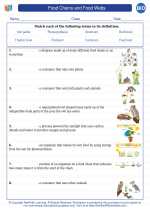Food Chains and Food Webs -> space exploration
Space Exploration
Space exploration is the investigation and study of outer space using space technology and astronomy. This field encompasses the study of celestial bodies such as planets, moons, asteroids, comets, and stars, as well as the development and use of spacecraft and related technologies for human and robotic exploration of space.
History of Space Exploration
The history of space exploration dates back to ancient times when early civilizations observed and studied the movements of celestial bodies. In the modern era, the exploration of space began with the launch of the first artificial satellite, Sputnik 1, by the Soviet Union in 1957. This event marked the beginning of the space age and led to a series of significant milestones in space exploration, including human spaceflights, robotic missions to other planets, and the establishment of space stations.
Importance of Space Exploration
Space exploration is important for a variety of reasons:
- Scientific Discovery: Space exploration allows scientists to study celestial bodies and phenomena, leading to new discoveries about the universe and our place in it.
- Technological Innovation: The development of space technology has led to advancements in various fields, including materials science, engineering, and computer technology.
- International Collaboration: Space exploration often involves collaboration between different countries, fostering international cooperation and diplomacy.
- Inspiration and Education: Space exploration inspires people around the world and serves as a platform for education and outreach in science and technology.
- Potential for Future Exploration: Understanding space and celestial bodies is crucial for future human exploration beyond Earth, including potential colonization of other planets.
Key Concepts in Space Exploration
Astronomy
Astronomy is the study of celestial objects and phenomena, including stars, planets, galaxies, and cosmic events. It plays a fundamental role in space exploration by providing the scientific basis for understanding the universe.
Spacecraft and Satellites
Spacecraft are vehicles designed for travel or operation in outer space. Satellites are artificial objects placed into orbit around Earth or other celestial bodies for various purposes, including communication, navigation, and scientific research.
Planetary Exploration
Planetary exploration involves the study of planets, moons, and other objects in our solar system and beyond. Robotic missions, such as those conducted by NASA's Mars rovers, provide valuable data about planetary geology, atmosphere, and potential for life.
Human Spaceflight
Human spaceflight involves sending astronauts into space to conduct research, maintain space stations, and potentially explore other celestial bodies. The International Space Station (ISS) is a key platform for ongoing human spaceflight activities.
Future Challenges and Opportunities
Space exploration faces various challenges, including technological limitations, funding constraints, and environmental risks. However, the potential for future exploration of Mars, the Moon, and beyond presents exciting opportunities for further scientific discovery and human achievement in space.
Study Guide
When studying space exploration, consider the following key topics:
- History of space exploration and major milestones
- Scientific principles and discoveries related to astronomy and celestial bodies
- Types of spacecraft and their functions
- Robotic missions to other planets and their findings
- The significance of human spaceflight and the ISS
- Potential future missions and challenges in space exploration
Engage in hands-on activities such as stargazing, building model rockets, and following recent space missions to deepen your understanding of space exploration.
.◂Biology Worksheets and Study Guides High School. Food Chains and Food Webs
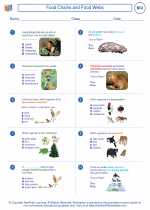
 Worksheet/Answer key
Worksheet/Answer key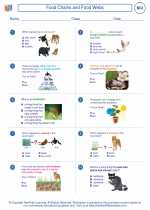
 Worksheet/Answer key
Worksheet/Answer key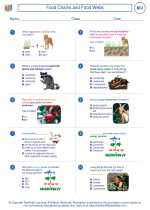
 Vocabulary/Answer key
Vocabulary/Answer key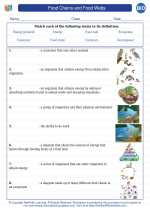
 Vocabulary/Answer key
Vocabulary/Answer key